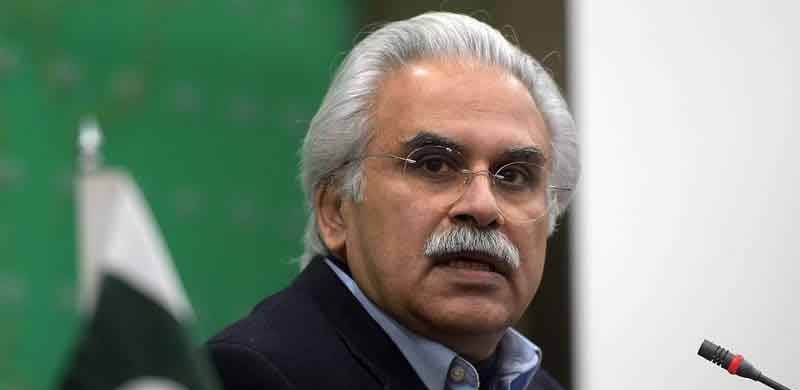
Special Advisor to the Prime Minister on Health Dr. Zafar Mirza appears to be giving the signal that a rethink is underway at the highest levels of power when it comes to Pakistan's laissez-faire approach to the Coronavirus pandemic. Predictably, he is relying on the caveat thrown in by the government at the time of lifting the halfhearted lockdown in the country: that if the standard operating procedures (SOPs) are not followed, there could be a new lockdown. This has been a disingenuous argument from the start.
Surely the federal government knew that its SOPs were not worth any paper that they were printed on, since there was no real intention to enforce them. If this was an experiment in the compliance of Pakistani society, it was a particularly ridiculous one. And if it was an attempt to sweep the issue under the rug for a few weeks, it was suicidal negligence.
In any case, the Prime Minister seemed convinced that even feeble efforts to actually enforce SOPs were an affront to the liberties of the Pakistani people and a threat to their prosperity. In the real world, most analysts saw a ruling dispensation that was unwilling to let a global emergency get in the way of its economic vision from months ago.
Medical expertise was ruthlessly and systematically questioned, discarded and thrown aside. Policy advice from people who were willing to face the problem was dismissed as a conspiracy by “elites” which are known only to the PM himself.
The past few weeks have been a terrible waste of an opportunity to control the outbreak in Pakistan.
Even now, there appears to be no decisiveness on the part of those in power. There is only confusion and warnings of the kind given to infants: if you are not good and we feel that the SOPs are not being followed, then you'll have to stay at home.
Meanwhile, officially-counted cases of infection continue to rise and anecdotal reports indicate that at least some major hospitals are under strain.
So Pakistanis wait to see whether the government has had enough of this experimental approach to pandemics, or whether it still feels that it has the situation under its control. Policy clarity on Covid-19 remains an elusive dream for now.
It is anyone's guess as to how this uncertainty and opaqueness will inspire confidence among investors, small traders and the “daily-wagers” that the government recently cites so often to justify its attitude.
Surely the federal government knew that its SOPs were not worth any paper that they were printed on, since there was no real intention to enforce them. If this was an experiment in the compliance of Pakistani society, it was a particularly ridiculous one. And if it was an attempt to sweep the issue under the rug for a few weeks, it was suicidal negligence.
In any case, the Prime Minister seemed convinced that even feeble efforts to actually enforce SOPs were an affront to the liberties of the Pakistani people and a threat to their prosperity. In the real world, most analysts saw a ruling dispensation that was unwilling to let a global emergency get in the way of its economic vision from months ago.
Medical expertise was ruthlessly and systematically questioned, discarded and thrown aside. Policy advice from people who were willing to face the problem was dismissed as a conspiracy by “elites” which are known only to the PM himself.
The past few weeks have been a terrible waste of an opportunity to control the outbreak in Pakistan.
Even now, there appears to be no decisiveness on the part of those in power. There is only confusion and warnings of the kind given to infants: if you are not good and we feel that the SOPs are not being followed, then you'll have to stay at home.
Meanwhile, officially-counted cases of infection continue to rise and anecdotal reports indicate that at least some major hospitals are under strain.
So Pakistanis wait to see whether the government has had enough of this experimental approach to pandemics, or whether it still feels that it has the situation under its control. Policy clarity on Covid-19 remains an elusive dream for now.
It is anyone's guess as to how this uncertainty and opaqueness will inspire confidence among investors, small traders and the “daily-wagers” that the government recently cites so often to justify its attitude.
